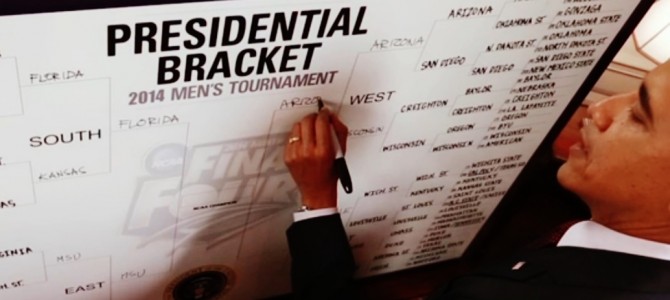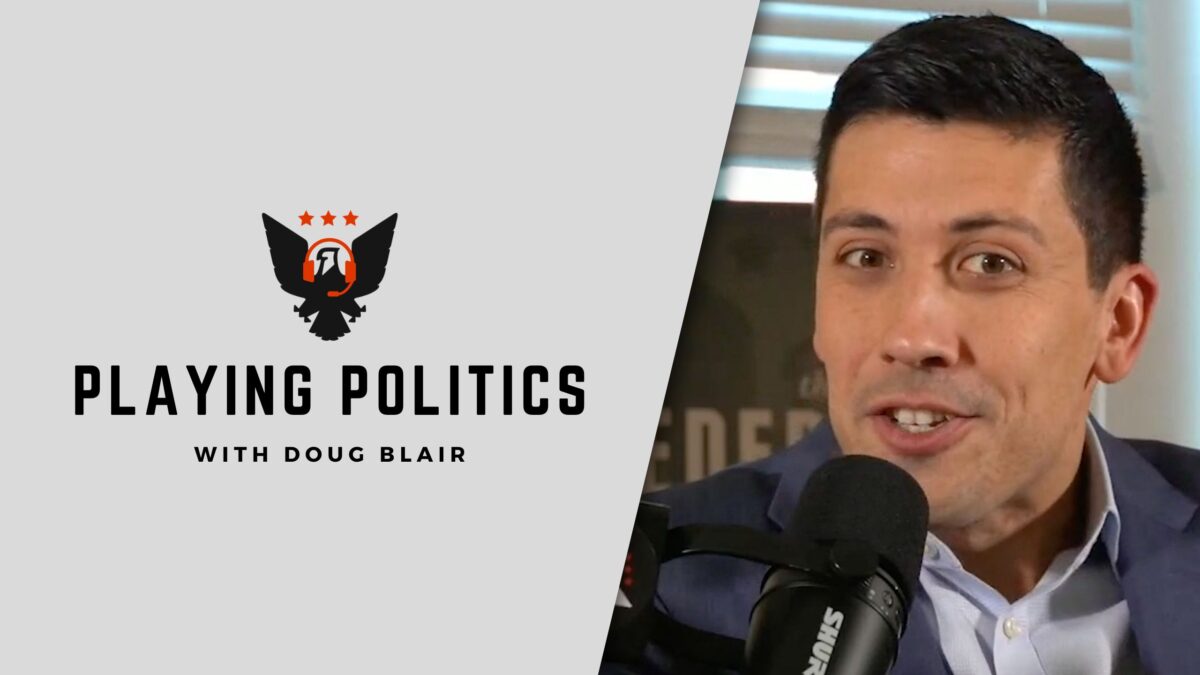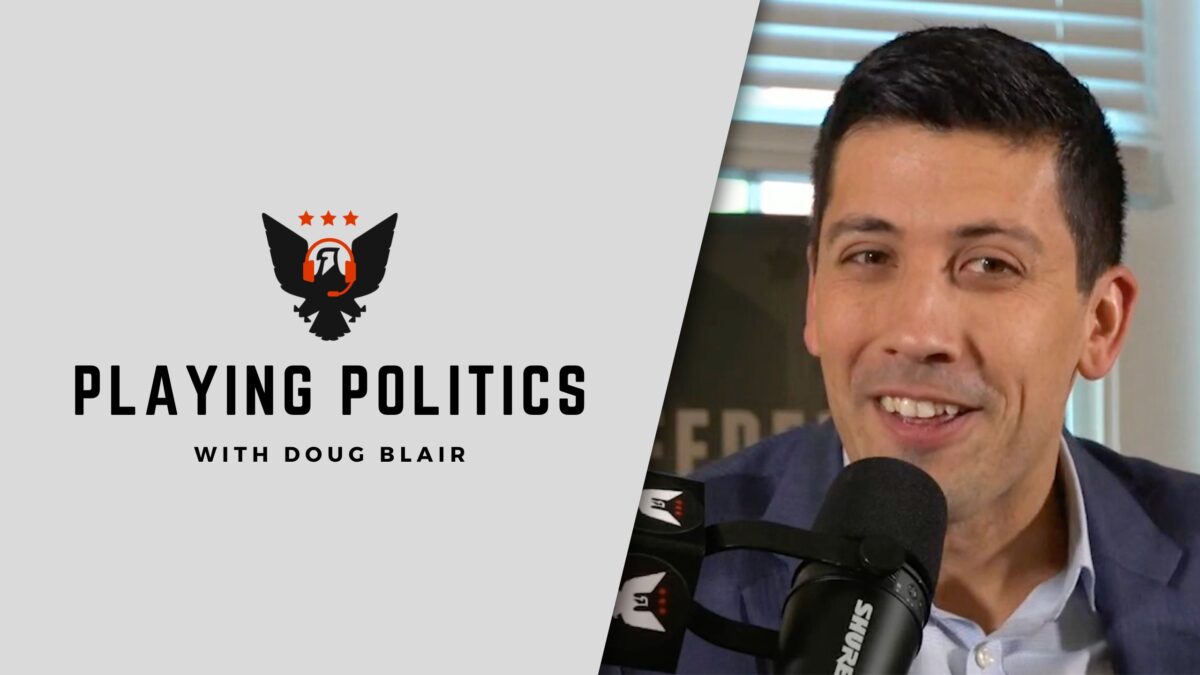
March Madness is a time when Americans of all backgrounds, faiths, and ethnicities come together for some good, clean, and likely illegal (depending on where you live) fun: gambling on college basketball.
Office pools are the primary way of doing this. Estimates vary widely, but it clearly adds up to hundreds of millions of dollars wagered on these games, often by people who pay little or no attention to the sport during the regular season – but now are glued to the results, because oh, if only Iowa State can hold on for another round…
Of course, the NCAA frowns on this with their normal severity. But so does the government. If you’re in an office pool, even a small one, it’s almost certainly categorized as an illegal bookmaking operation:
You’re in the clear if your office is located in Nevada, where sports wagering is legal; in Montana, where sports pools are legal as long as the house doesn’t take a cut; and in Vermont and Connecticut, where small-time pools among friends and colleagues are allowed… The Professional and Amateur Sports Protection Act of 1992 which outlawed sports wagering in all but four states. Oregon, Delaware, and Montana were allowed to run “sports lotteries”; Nevada is still the only state where you can lay down a straight wager on a variety of sporting events.
Of course, the odd thing about this situation is that even as the government bans these obviously harmless office pools, where someone who picked according to jersey color is likely to deprive the resident expert bracketologist of an Andrew Jackson, it also profits from a far more harmful form of gambling: state-run lotteries.
These lotteries are enormously popular. Theoretically, they represent an opportunity to roll the dice on 1 in 175 million odds to the benefit of public education and the like. Functionally, they behave as a tax on the poor and desperate, ripping people off en masse. And in times of desperation, poor people wager even more, buying more tickets in an attempt to make up the losses. The Week reports that government-run lotteries have been one of the few “bright spots” during the economic downturn:
Williams could have simply said the odds of winning the $590 million jackpot were 1 in 175 million. But that wouldn’t register. “People just aren’t able to grasp 1 in 175 million,” Williams says. “It’s just beyond our experience — we have nothing in our evolutionary history that prepares us or primes us, no intellectual architecture, to try and grasp the remoteness of those odds.” And so we continue to play. And play. People in 43 states bought a total of 232 million Powerball tickets for the lottery won by MacKenzie. In fact, the lottery in the United States is so popular that it was one of the few consumer products where spending held steady and, in some states, increased, during the recent recession. That’s still the case. About 57 percent of Americans reported buying tickets in the last 12 months. For the 2012 fiscal year, U.S. lottery sales totaled about $78 billion.
That’s billions of dollars effectively thrown away, and not for people occasionally playing a game of chance, but for the poorest gamblers who are addicted to the chance at the big payout. That’s who the government rips off, over and over again:
A widely-cited 1999 Duke study determined the demographics of this top 20 percent, and the results are disturbing. African Americans comprised 25.4 percent of the heaviest players, even though they make up only 12.2 percent of the country. High school dropouts were 20.3 percent, but 12.3 percent of the country. Those with household incomes under $10,000 are 5 percent of citizens, but 10 percent of the heaviest players. The practical impact? Lottery players who were high school dropouts spent $700 a year on the lottery on average. Those with yearly household incomes under $10,000 spent nearly $600. These are the players on which lotteries rely.
There’s more here from Michael Heberling. And does this money at least go to help schools, as proponents promised? Actually, the support for education is for the most part a total lie. The money is fungible, going toward roads and work projects, and even just back to the state general fund. And for many states, it’s not an insignificant percentage of their revenue. The reality today is that lotteries fund the growth of state budgets with tens of billions of dollars taken from the pockets of poor and working class people who don’t understand math, or who understand it but still throw their money away in pursuit of the gold at the end of the rainbow.
But the issue isn’t that government lotteries give terrible odds. Instead, the issue is that government plays the role of mafia tough guy. The only real winners in the government lottery game are the governments themselves—and they don’t like competition round these parts. So state governments run lotteries that give horrible odds, ripping off their own taxpayers, and big-government folks love it. When anyone in the private sector runs lotteries or even private poker games – with better odds and payouts – the government shuts them down, calls it a “numbers racket”, or even unleashes RICO charges.
Now, you may be saying: where’s the harm? Shouldn’t people decide for themselves? After all, nobody forces people to play these games with long odds. That’s an argument in favor of gambling generally, but not when it comes to the state. When government becomes dependent on the flow of revenue from a certain activity, they are incentivized to promote that activity – even if it stands to the detriment of their own citizens. When governments become dependent on people too stupid or desperate to know better playing a game they are never going to win, they are incentivized to promote this game like mad to the most dedicated gamblers to keep them coming back for more. All across the country people are throwing their money at games with odds far worse than any Vegas casino, and big government advocates are smiling all the way to the bank.
People should have the freedom to make stupid decisions. Government shouldn’t coddle them. But government also shouldn’t incentivize them to make stupid decisions for its own profit. As Saint Augustine wrote: “Justice being taken away, then, what are kingdoms but great robberies?” Government shouldn’t be in the business of ripping people off. They do that enough, even without the lottery.









